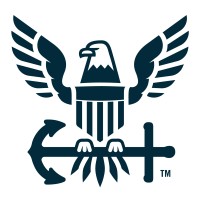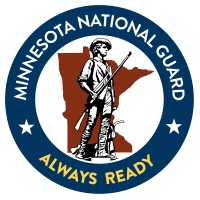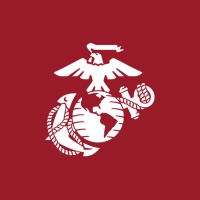
U.S. Air Force Reserve Company Cyber Security Posture
afreserve.comThe Air Force Reserve is an integral component of our Nation's air defense and military support network. Reservists bring knowledge, skills and expertise from their civilian experiences to support critical missions and training around the globe, while working alongside their Active Duty Air Force members. The Reserve provides the opportunity to live where you serve or serve where you live, while excelling at your civilian career, furthering your education, and serving your country! Call 800-257-1212 or download the AIM HIGH app to learn more about Air Force Reserve opportunities near you.
UAFR Company Details
us-air-force-reserve
18911 employees
72417.0
928
Armed Forces
afreserve.com
Scan still pending
U.S_9285751
In-progress
Between 800 and 900
This score is AI-generated and less favored by cyber insurers, who prefer the TPRM score.
 UAFR Global Score
UAFR Global Score.png)

U.S. Air Force Reserve Company Scoring based on AI Models
| Model Name | Date | Description | Current Score Difference | Score |
|---|---|---|---|---|
| AVERAGE-Industry | 03-12-2025 | This score represents the average cybersecurity rating of companies already scanned within the same industry. It provides a benchmark to compare an individual company's security posture against its industry peers. | N/A | Between 800 and 900 |
U.S. Air Force Reserve Company Cyber Security News & History
| Entity | Type | Severity | Impact | Seen | Url ID | Details | View |
|---|
U.S. Air Force Reserve Company Subsidiaries

The Air Force Reserve is an integral component of our Nation's air defense and military support network. Reservists bring knowledge, skills and expertise from their civilian experiences to support critical missions and training around the globe, while working alongside their Active Duty Air Force members. The Reserve provides the opportunity to live where you serve or serve where you live, while excelling at your civilian career, furthering your education, and serving your country! Call 800-257-1212 or download the AIM HIGH app to learn more about Air Force Reserve opportunities near you.
Access Data Using Our API

Get company history
.png)
UAFR Cyber Security News
California Air Guard Prepares Airmen for Cyber Defense
The 163rd Communications Flight prepared for the California National Guard's Exercise Cyber Dawn in June by engaging in digital disaster ...
UAH Air Force ROTC program holds enlistment ceremony for its first group of seven cadets
U.S. Air Force ROTC cadets from The University of Alabama in Huntsville (UAH) show their Charger spirit following their enlistment ceremony on ...
Max Shier Joins Amentum as Chief Information Security Officer HS Today
Cybersecurity and retired U.S. Air Force veteran Max Shier has joined Amentum as Vice President and Chief Information Security Officer ...
Cyber lethality: Multidomain training enhances readiness at exercise African Lion 2025
Exercise African Lion 2025 is more than a test of technical prowess; it shows the power of multinational collaboration in the face of evolving ...
AFIT’s Immersive Cyber Education Program targets cadets
Reserve Officer Training Corps cadets spent a month learning about cyber security as part of the Air Force Institute of Technology's Immersive Cyber Education ...
2024 Air, Space & Cyber—Pilot Shortage: A Chronic Problem
Air Force and defense leaders shared valuable insights during the "Pilot Shortage: A Chronic Problem" panel at AFA's 2024 Air, Space & Cyber ...
U.S. Air Force Orders Thales F-16 Helmet Mounted Displays through NATO Support and Procurement Agency (NSPA)
The Scorpion HMD kits provide a modern digital platform allowing for enhanced pilot situational awareness with full color symbology and a single ...
Brigadier General Terrence Adams
Brig. Gen. Terrence Adams is the Deputy Principal Cyber Advisor (DPCA) to the Secretary of Defense and Senior Military Advisor for Cyber Policy.
Major General ROBERT W. CLAUDE
Maj. Gen. Robert W. Claude is the Mobilization Assistant to the Chief of Space Operations, Headquarters United States Space Force, the Pentagon.

UAFR Similar Companies

Department of National Defence/Ministère de la défense nationale
The Department of National Defence (DND) is a Canadian government department responsible for defending Canada's interests and values at home and abroad, as well as contributing to international peace and security. DND is the largest department of the Government of Canada in terms of budget as well a

US Navy
The United States is a maritime nation, and the U.S. Navy protects America at sea. Alongside our allies and partners, we defend freedom, preserve economic prosperity, and keep the seas open and free. Our nation is engaged in long-term competition. To defend American interests around the globe, the U

British Army
Joining the British Army, you’ll get much more from life than you ever would with a civilian career – you’ll have the opportunity to do something that really matters, with a team that are like family to you. The sense of belonging in the Army is next level: when you’ve trained with each other and ov

Canadian Armed Forces | Forces armées canadiennes
A career in the Canadian Armed Forces is more than a way to make a living. It’s a passport to a whole-life experience that will change you and allow you to change the lives of others. Join an organization that offers more than 100 different trades and professions. Obtain world-class qualification

Minnesota National Guard
The Minnesota National Guard is a joint force of citizen Soldiers and Airmen that serve our state and nation with the Governor as their Commander in Chief, assisting during disasters and other emergencies. In times of war, Minnesota National Guard Soldiers and Airmen can be called into federal activ

Marine Corps Recruiting
This is the Official LinkedIn Page of Marine Corps Recruiting. We make Marines. We win our nation's battles. We develop quality citizens. These are the promises the Marine Corps makes to our nation and to our Marines. The core values that guide us, and the leadership skills that enable us, not on

Frequently Asked Questions (FAQ) on Cybersecurity Incidents
UAFR CyberSecurity History Information
Total Incidents: According to Rankiteo, UAFR has faced 0 incidents in the past.
Incident Types: As of the current reporting period, UAFR has not encountered any cybersecurity incidents.
Total Financial Loss: The total financial loss from these incidents is estimated to be {total_financial_loss}.
Cybersecurity Posture: The company's overall cybersecurity posture is described as The Air Force Reserve is an integral component of our Nation's air defense and military support network. Reservists bring knowledge, skills and expertise from their civilian experiences to support critical missions and training around the globe, while working alongside their Active Duty Air Force members. The Reserve provides the opportunity to live where you serve or serve where you live, while excelling at your civilian career, furthering your education, and serving your country! Call 800-257-1212 or download the AIM HIGH app to learn more about Air Force Reserve opportunities near you..
Detection and Response: The company detects and responds to cybersecurity incidents through {description_of_detection_and_response_process}.
Incident Details
Incident 1: Ransomware Attack
Title: {Incident_Title}
Description: {Brief_description_of_the_incident}
Date Detected: {Detection_Date}
Date Publicly Disclosed: {Disclosure_Date}
Date Resolved: {Resolution_Date}
Type: {Type_of_Attack}
Attack Vector: {Attack_Vector}
Vulnerability Exploited: {Vulnerability}
Threat Actor: {Threat_Actor}
Motivation: {Motivation}
Incident 2: Data Breach
Title: {Incident_Title}
Description: {Brief_description_of_the_incident}
Date Detected: {Detection_Date}
Date Publicly Disclosed: {Disclosure_Date}
Date Resolved: {Resolution_Date}
Type: {Type_of_Attack}
Attack Vector: {Attack_Vector}
Vulnerability Exploited: {Vulnerability}
Threat Actor: {Threat_Actor}
Motivation: {Motivation}
Common Attack Types: As of now, the company has not encountered any reported incidents involving common cyberattacks.
Identification of Attack Vectors: The company identifies the attack vectors used in incidents through {description_of_identification_process}.
Impact of the Incidents
Incident 1: Ransomware Attack
Financial Loss: {Financial_Loss}
Data Compromised: {Data_Compromised}
Systems Affected: {Systems_Affected}
Downtime: {Downtime}
Operational Impact: {Operational_Impact}
Conversion Rate Impact: {Conversion_Rate_Impact}
Revenue Loss: {Revenue_Loss}
Customer Complaints: {Customer_Complaints}
Brand Reputation Impact: {Brand_Reputation_Impact}
Legal Liabilities: {Legal_Liabilities}
Identity Theft Risk: {Identity_Theft_Risk}
Payment Information Risk: {Payment_Information_Risk}
Incident 2: Data Breach
Financial Loss: {Financial_Loss}
Data Compromised: {Data_Compromised}
Systems Affected: {Systems_Affected}
Downtime: {Downtime}
Operational Impact: {Operational_Impact}
Conversion Rate Impact: {Conversion_Rate_Impact}
Revenue Loss: {Revenue_Loss}
Customer Complaints: {Customer_Complaints}
Brand Reputation Impact: {Brand_Reputation_Impact}
Legal Liabilities: {Legal_Liabilities}
Identity Theft Risk: {Identity_Theft_Risk}
Payment Information Risk: {Payment_Information_Risk}
Average Financial Loss: The average financial loss per incident is {average_financial_loss}.
Commonly Compromised Data Types: The types of data most commonly compromised in incidents are {list_of_commonly_compromised_data_types}.
Incident 1: Ransomware Attack
Entity Name: {Entity_Name}
Entity Type: {Entity_Type}
Industry: {Industry}
Location: {Location}
Size: {Size}
Customers Affected: {Customers_Affected}
Incident 2: Data Breach
Entity Name: {Entity_Name}
Entity Type: {Entity_Type}
Industry: {Industry}
Location: {Location}
Size: {Size}
Customers Affected: {Customers_Affected}
Response to the Incidents
Incident 1: Ransomware Attack
Incident Response Plan Activated: {Yes/No}
Third Party Assistance: {Yes/No}
Law Enforcement Notified: {Yes/No}
Containment Measures: {Containment_Measures}
Remediation Measures: {Remediation_Measures}
Recovery Measures: {Recovery_Measures}
Communication Strategy: {Communication_Strategy}
Adaptive Behavioral WAF: {Adaptive_Behavioral_WAF}
On-Demand Scrubbing Services: {On_Demand_Scrubbing_Services}
Network Segmentation: {Network_Segmentation}
Enhanced Monitoring: {Enhanced_Monitoring}
Incident 2: Data Breach
Incident Response Plan Activated: {Yes/No}
Third Party Assistance: {Yes/No}
Law Enforcement Notified: {Yes/No}
Containment Measures: {Containment_Measures}
Remediation Measures: {Remediation_Measures}
Recovery Measures: {Recovery_Measures}
Communication Strategy: {Communication_Strategy}
Adaptive Behavioral WAF: {Adaptive_Behavioral_WAF}
On-Demand Scrubbing Services: {On_Demand_Scrubbing_Services}
Network Segmentation: {Network_Segmentation}
Enhanced Monitoring: {Enhanced_Monitoring}
Incident Response Plan: The company's incident response plan is described as {description_of_incident_response_plan}.
Third-Party Assistance: The company involves third-party assistance in incident response through {description_of_third_party_involvement}.
Data Breach Information
Incident 2: Data Breach
Type of Data Compromised: {Type_of_Data}
Number of Records Exposed: {Number_of_Records}
Sensitivity of Data: {Sensitivity_of_Data}
Data Exfiltration: {Yes/No}
Data Encryption: {Yes/No}
File Types Exposed: {File_Types}
Personally Identifiable Information: {Yes/No}
Prevention of Data Exfiltration: The company takes the following measures to prevent data exfiltration: {description_of_prevention_measures}.
Handling of PII Incidents: The company handles incidents involving personally identifiable information (PII) through {description_of_handling_process}.
Ransomware Information
Incident 1: Ransomware Attack
Ransom Demanded: {Ransom_Amount}
Ransom Paid: {Ransom_Paid}
Ransomware Strain: {Ransomware_Strain}
Data Encryption: {Yes/No}
Data Exfiltration: {Yes/No}
Ransom Payment Policy: The company's policy on paying ransoms in ransomware incidents is described as {description_of_ransom_payment_policy}.
Data Recovery from Ransomware: The company recovers data encrypted by ransomware through {description_of_data_recovery_process}.
Regulatory Compliance
Incident 1: Ransomware Attack
Regulations Violated: {Regulations_Violated}
Fines Imposed: {Fines_Imposed}
Legal Actions: {Legal_Actions}
Regulatory Notifications: {Regulatory_Notifications}
Incident 2: Data Breach
Regulations Violated: {Regulations_Violated}
Fines Imposed: {Fines_Imposed}
Legal Actions: {Legal_Actions}
Regulatory Notifications: {Regulatory_Notifications}
Regulatory Frameworks: The company complies with the following regulatory frameworks regarding cybersecurity: {list_of_regulatory_frameworks}.
Ensuring Regulatory Compliance: The company ensures compliance with regulatory requirements through {description_of_compliance_measures}.
Lessons Learned and Recommendations
Incident 1: Ransomware Attack
Lessons Learned: {Lessons_Learned}
Incident 2: Data Breach
Lessons Learned: {Lessons_Learned}
Incident 1: Ransomware Attack
Recommendations: {Recommendations}
Incident 2: Data Breach
Recommendations: {Recommendations}
Key Lessons Learned: The key lessons learned from past incidents are {list_of_key_lessons_learned}.
Implemented Recommendations: The company has implemented the following recommendations to improve cybersecurity: {list_of_implemented_recommendations}.
References
Additional Resources: Stakeholders can find additional resources on cybersecurity best practices at {list_of_additional_resources}.
Investigation Status
Incident 1: Ransomware Attack
Investigation Status: {Investigation_Status}
Incident 2: Data Breach
Investigation Status: {Investigation_Status}
Communication of Investigation Status: The company communicates the status of incident investigations to stakeholders through {description_of_communication_process}.
Stakeholder and Customer Advisories
Incident 1: Ransomware Attack
Stakeholder Advisories: {Stakeholder_Advisories}
Customer Advisories: {Customer_Advisories}
Incident 2: Data Breach
Stakeholder Advisories: {Stakeholder_Advisories}
Customer Advisories: {Customer_Advisories}
Advisories Provided: The company provides the following advisories to stakeholders and customers following an incident: {description_of_advisories_provided}.
Initial Access Broker
Incident 1: Ransomware Attack
Entry Point: {Entry_Point}
Reconnaissance Period: {Reconnaissance_Period}
Backdoors Established: {Backdoors_Established}
High Value Targets: {High_Value_Targets}
Data Sold on Dark Web: {Yes/No}
Incident 2: Data Breach
Entry Point: {Entry_Point}
Reconnaissance Period: {Reconnaissance_Period}
Backdoors Established: {Backdoors_Established}
High Value Targets: {High_Value_Targets}
Data Sold on Dark Web: {Yes/No}
Monitoring and Mitigation of Initial Access Brokers: The company monitors and mitigates the activities of initial access brokers through {description_of_monitoring_and_mitigation_measures}.
Post-Incident Analysis
Incident 1: Ransomware Attack
Root Causes: {Root_Causes}
Corrective Actions: {Corrective_Actions}
Incident 2: Data Breach
Root Causes: {Root_Causes}
Corrective Actions: {Corrective_Actions}
Post-Incident Analysis Process: The company's process for conducting post-incident analysis is described as {description_of_post_incident_analysis_process}.
Corrective Actions Taken: The company has taken the following corrective actions based on post-incident analysis: {list_of_corrective_actions_taken}.
Additional Questions
General Information
Ransom Payment History: The company has {paid/not_paid} ransoms in the past.
Last Ransom Demanded: The amount of the last ransom demanded was {last_ransom_amount}.
Last Attacking Group: The attacking group in the last incident was {last_attacking_group}.
Incident Details
Most Recent Incident Detected: The most recent incident detected was on {most_recent_incident_detected_date}.
Most Recent Incident Publicly Disclosed: The most recent incident publicly disclosed was on {most_recent_incident_publicly_disclosed_date}.
Most Recent Incident Resolved: The most recent incident resolved was on {most_recent_incident_resolved_date}.
Impact of the Incidents
Highest Financial Loss: The highest financial loss from an incident was {highest_financial_loss}.
Most Significant Data Compromised: The most significant data compromised in an incident was {most_significant_data_compromised}.
Most Significant System Affected: The most significant system affected in an incident was {most_significant_system_affected}.
Response to the Incidents
Third-Party Assistance in Most Recent Incident: The third-party assistance involved in the most recent incident was {third_party_assistance_in_most_recent_incident}.
Containment Measures in Most Recent Incident: The containment measures taken in the most recent incident were {containment_measures_in_most_recent_incident}.
Data Breach Information
Most Sensitive Data Compromised: The most sensitive data compromised in a breach was {most_sensitive_data_compromised}.
Number of Records Exposed: The number of records exposed in the most significant breach was {number_of_records_exposed}.
Ransomware Information
Highest Ransom Demanded: The highest ransom demanded in a ransomware incident was {highest_ransom_demanded}.
Highest Ransom Paid: The highest ransom paid in a ransomware incident was {highest_ransom_paid}.
Regulatory Compliance
Highest Fine Imposed: The highest fine imposed for a regulatory violation was {highest_fine_imposed}.
Most Significant Legal Action: The most significant legal action taken for a regulatory violation was {most_significant_legal_action}.
Lessons Learned and Recommendations
Most Significant Lesson Learned: The most significant lesson learned from past incidents was {most_significant_lesson_learned}.
Most Significant Recommendation Implemented: The most significant recommendation implemented to improve cybersecurity was {most_significant_recommendation_implemented}.
References
Most Recent Source: The most recent source of information about an incident is {most_recent_source}.
Most Recent URL for Additional Resources: The most recent URL for additional resources on cybersecurity best practices is {most_recent_url}.
Investigation Status
Current Status of Most Recent Investigation: The current status of the most recent investigation is {current_status_of_most_recent_investigation}.
Stakeholder and Customer Advisories
Most Recent Stakeholder Advisory: The most recent stakeholder advisory issued was {most_recent_stakeholder_advisory}.
Most Recent Customer Advisory: The most recent customer advisory issued was {most_recent_customer_advisory}.
Initial Access Broker
Most Recent Entry Point: The most recent entry point used by an initial access broker was {most_recent_entry_point}.
Most Recent Reconnaissance Period: The most recent reconnaissance period for an incident was {most_recent_reconnaissance_period}.
Post-Incident Analysis
Most Significant Root Cause: The most significant root cause identified in post-incident analysis was {most_significant_root_cause}.
Most Significant Corrective Action: The most significant corrective action taken based on post-incident analysis was {most_significant_corrective_action}.
What Do We Measure?
















Every week, Rankiteo analyzes billions of signals to give organizations a sharper, faster view of emerging risks. With deeper, more actionable intelligence at their fingertips, security teams can outpace threat actors, respond instantly to Zero-Day attacks, and dramatically shrink their risk exposure window.
These are some of the factors we use to calculate the overall score:
Identify exposed access points, detect misconfigured SSL certificates, and uncover vulnerabilities across the network infrastructure.
Gain visibility into the software components used within an organization to detect vulnerabilities, manage risk, and ensure supply chain security.
Monitor and manage all IT assets and their configurations to ensure accurate, real-time visibility across the company's technology environment.
Leverage real-time insights on active threats, malware campaigns, and emerging vulnerabilities to proactively defend against evolving cyberattacks.




